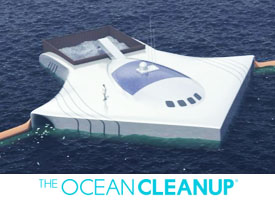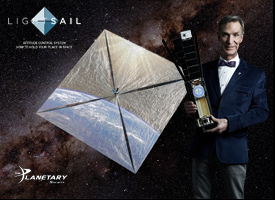 The Online Time Capsule
The Online Time Capsulesomething...����
 UFC 197: Jones vs. Saint Preux Octagon Massacre Predictions
UFC 197: Jones vs. Saint Preux Octagon Massacre Predictions
MAIN CARD
Light Heavyweight: Jon Jones def. Ovince Saint Preux TKO (Superman punch & Elbows & Knees)
Flyweight: Demetrious Johnson (c) def. Henry Cejudo via Submission (leg lock)
Lightweight: Anthony Pettis def. Edson Barboza via TKO (high kick & hammer fists)
Middleweight: Robert Whittaker def. Rafael Natal via KO (left hook)
Featherweight: Yair Rodríguez def. Andre Fili via Submission (triangle choke)
Preliminary Card (Fox Sports 1)
Flyweight: Sergio Pettis def. Chris Kelades via Submission (kimura)
Welterweight: Dominique Steele def. Danny Roberts via Decision (unanimous)
Women's Strawweight: Juliana Lima def. Carla Esparza via TKO (punches & elbows)
Lightweight: James Vick def. Glaico França via Submission (guillotine choke)
Fight of the Night: Anthony Pettis vs. Edson Barboza
Performance of the Night: Jon "Bones" Jones
Submission of the Night: Demetrius Johnson
KO of the Night: Robert Whittaker

 WORLD’S FIRST OCEAN CLEANING SYSTEM is DEPLOYED
WORLD’S FIRST OCEAN CLEANING SYSTEM is DEPLOYED
Deployment will become longest floating structure in world history
Boyan Slat, 20-year old founder and CEO of The Ocean Cleanup, today announced that the world’s first system to passively clean up plastic pollution from the world’s oceans is to be deployed in 2016. He made the announcement at Asia’s largest technology conference, Seoul Digital Forum, in South-Korea.
The array is projected to be deployed in Q2 2016. The feasibility of deployment, off the coast of Tsushima, an island located in the waters between Japan and South-Korea is currently being researched.
The system will span 2000 meters, thereby becoming the longest floating structure ever deployed in the ocean (beating the current record of 1000 m held by the Tokyo Mega-Float). It will be operational for at least two years, catching plastic pollution before it reaches the shores of the proposed deployment location of Tsushima island. Tsushima island is evaluating whether the plastic can be used as an alternative energy source.
The scale of the plastic pollution problem, whereby in the case of Tsushima island, approximately one cubic meter of pollution per person is washed up each year, has led the Japanese the local government to seek innovative solutions to the problem.
Boyan Slat, 20-year old founder and CEO of The Ocean Cleanup, today announced that the world’s first system to passively clean up plastic pollution from the world’s oceans is to be deployed in 2016. He made the announcement at Asia’s largest technology conference, Seoul Digital Forum, in South-Korea.
The array is projected to be deployed in Q2 2016. The feasibility of deployment, off the coast of Tsushima, an island located in the waters between Japan and South-Korea is currently being researched.
The system will span 2000 meters, thereby becoming the longest floating structure ever deployed in the ocean (beating the current record of 1000 m held by the Tokyo Mega-Float). It will be operational for at least two years, catching plastic pollution before it reaches the shores of the proposed deployment location of Tsushima island. Tsushima island is evaluating whether the plastic can be used as an alternative energy source.
The scale of the plastic pollution problem, whereby in the case of Tsushima island, approximately one cubic meter of pollution per person is washed up each year, has led the Japanese the local government to seek innovative solutions to the problem.
The deployment will represents an important milestone in The Ocean Cleanup’s mission to remove plastic pollution from the world’s oceans. Within five years, after a series of deployments of increasing scale, The Ocean Cleanup plans to deploy a 100km-long system to clean up about half the Great Pacific Garbage Patch, between Hawaii and California.
Boyan Slat, founder and CEO of The Ocean Cleanup: “Taking care of the world’s ocean garbage problem is one of the largest environmental challenges mankind faces today. Not only will this first cleanup array contribute to cleaner waters and coasts but it simultaneously is an essential step towards our goal of cleaning up the Great Pacific Garbage Patch. This deployment will enable us to study the system’s efficiency and durability over time.
Source: http://www.theoceancleanup.com/blog/show/item/worlds-first-ocean-cleaning-system-to-be-deployed-in-2016.html�����������
 UFC Fight Night 86 Zagreb: Rothwell vs. dos Santos Guillotine Predictions
UFC Fight Night 86 Zagreb: Rothwell vs. dos Santos Guillotine Predictions
Heavyweight: Ben Rothwell def. Junior dos Santos via Submission (forearm choke)
Heavyweight: Gabriel Gonzaga def. Derrick Lewis via KO (superman punch)
Heavyweight: Curtis Blaydes def. Francis Ngannou via KO (punches)
Heavyweight: Marcin Tybura def Timothy Johnson via Submission (Rear-Naked Choke)
Light Heavyweight: Jan Błachowicz def. Igor Pokrajac via KO (head kick and punch)
Women's Strawweight: Maryna Moroz def. Cristina Stanciu via Submission (straight armbar)
Submission of the Night: Ben Rothwell
KO of the night: Gabriel Gonzaga
Performance of the Night: Jan Błachowicz����������

 The Planetary Society’s second LightSail spacecraft performs full demonstration of solar sailing in Earth orbit
The Planetary Society’s second LightSail spacecraft performs full demonstration of solar sailing in Earth orbit
Pasadena, CA (January 26, 2015) – The Planetary Society today announced the first of its LightSail spacecraft will embark on a May 2015 test flight. Funded entirely by private citizens, the solar sail satellite will hitch a ride to space aboard an Atlas V rocket from Cape Canaveral Air Force Station in Florida. The mission will test LightSail’s critical functions, a precursor to a second mission slated for 2016. That second flight will mark the first controlled, Earth-orbit solar sail flight and ride along with the first operational launch of SpaceX's Falcon Heavy rocket.
“There's an old saying in aerospace, 'One test is worth a thousand expert opinions.’ After six years of development, we're ready at last to see how LightSail flies," said Bill Nye (The Science Guy), CEO at The Planetary Society.
"LightSail is technically wonderful, but it's also wonderfully romantic. We'll sail on sunbeams,” added Nye. “But wait, there’s more: this unique, remarkable spacecraft is funded entirely by private citizens, people who think spaceflight is cool."
Solar sailing works by using sunlight for propulsion. When solar photons strike LightSail's reflective Mylar® sails, their momentum is transferred to the spacecraft, gradually accelerating it through space. While the push from photons is miniscule, it is continuous and unlimited. Solar sails can eventually reach greater speeds than those obtained from chemical rockets. LightSail consists of four identical triangular sails attached to four 4-meter booms, resulting in a square solar sail when fully deployed.
The 2015 test flight will not carry the spacecraft high enough to escape Earth's atmospheric drag, and will thus not demonstrate controlled solar sailing. Once in orbit, the spacecraft will go through a checkout and testing period of about four weeks before deploying its solar sails. After the sails unfurl, LightSail will test its attitude control system and study the behavior of the sails for a few days before it is pulled back into the planet's atmosphere. Key images and data on the spacecraft's performance will be sent to ground stations at Cal Poly San Luis Obispo and Georgia Tech.
Dr. Neil deGrasse Tyson, Hayden Planetarium director and Planetary Society board of directors member, added, “With the expected launch of LightSail -- a craft propelled among the stars on the pressure of light itself -- the expanse of space becomes a literal analogue to the open seas. If space is tomorrow's ocean, then Earth’s surface is its shoreline.”
LightSail is packaged into a small spacecraft called a CubeSat. CubeSats have made low-cost space missions a reality for universities and research groups. However, providing propulsion for these tiny satellites has been a major challenge. LightSail will demonstrate the viability of solar sailing for CubeSats. The spacecraft was designed by Stellar Exploration, Inc., in San Luis Obispo, Calif. LightSail's lead contractor for integration and testing is Pasadena, Calif.-based Ecliptic Enterprises Corporation, a space avionics and sensor systems firm best known for its popular RocketCam™ family of video systems used on rockets and spacecraft.
“Starting with a clever ‘3U’ CubeSat design from Stellar Exploration, a small team at Ecliptic was tasked a year ago with completing the final integration and testing of this first LightSail spacecraft,” said Rex Ridenoure, CEO of Ecliptic. “We experienced several design, hardware, software and testing issues along the way, but thanks to excellent technical support from Stellar Exploration, Boreal Space, Half Band Technologies, Cal Poly, Georgia Tech and others, we surmounted them all and succeeded in securing approval to launch.”
The Planetary Society’s second LightSail spacecraft is scheduled to fly in 2016. This mission will build on the results of the test flight to conduct a full demonstration of solar sailing in Earth orbit. LightSail will be packaged inside a spacecraft called Prox-1 built by students at Georgia Tech. The spacecraft duo will be launched aboard a SpaceX Falcon Heavy rocket to an orbit of about 720 kilometers (450 miles).
The Planetary Society's solar sailing involvement was started by Society co-founder Louis Friedman more than a decade ago. The LightSail project is managed by Doug Stetson, founder and principal partner of the Space Science and Exploration Consulting Group.
“LightSail is truly ‘the people’s satellite.’ Thanks to our members, the dream of citizen supported solar sailing will become a reality; the vision goes back to our founders, Lou Friedman, Bruce Murray, and Carl Sagan. We encourage space fans worldwide to join us on LightSail’s journey. Together we can change the world.” Nye concluded.
For complete LightSail coverage, visit sail.planetary.org.������
 The Hydrogen HONDA FCV tsunami is flooding the Japan car market
The Hydrogen HONDA FCV tsunami is flooding the Japan car market
Honda FCV Concept showcases the styling evolution of the next-generation zero emissions Honda fuel cell vehicle
Next-generation Honda FCV intends to provide significant gains in real-world performance, cost reduction, efficiency, packaging and appeal, including more than 300-mile driving range
TOKYO, Nov. 17, 2014 – The Honda FCV Concept, Honda's fuel cell vehicle concept, made its world debut today in Japan. The Honda FCV Concept showcases the styling evolution of Honda's fuel-cell vehicle anticipated to launch in Japan by March of 2016, followed by U.S. and Europe.
As the next progression in Honda's dynamic FCV styling, the Honda FCV Concept features a low and wide aerodynamic body with clean character lines. The interior strives to achieve harmony between man and machine by taking advantage of new powertrain packaging efficiencies delivering even greater passenger space than its predecessor, the FCX Clarity, including seating for up to five people.
In an effort to support the wider introduction of fuel cell vehicles, Honda will make an announcement at the 2014 Los Angeles Auto Show about its commitment to help expand and accelerate California's public hydrogen refueling station network.
Next Generation Honda Fuel Cell Vehicle
Honda's next generation fuel cell vehicle launching in 2016 applies a fuel-cell powertrain that fits completely within the front engine compartment of the vehicle, allowing for efficiencies in cabin space as well as flexibility in the potential application of fuel cell technology to multiple vehicle models in the future. Significant technological advancements to the fuel-cell stack have yielded more than 100kW of power output. The power density is now 3.1kW/L, an increase of 60 percent, with the stack size
reduced 33-percent compared to the Honda FCX Clarity. The next generation Honda FCV is targeted to deliver a driving range of more than 300 miles with a quick refueling time of about three to five minutes at a pressure of 70 MPa.
Honda Fuel-Cell Vehicle Leadership
Honda has led the industry for nearly two decades in the development and deployment of fuel-cell technology through extensive real-world testing, including the first government fleet deployment and retail customer leasing program. Since the introduction of its first generation fuel-cell vehicle, the FCX, in 2002, Honda has made significant technological advancements in fuel-cell vehicle operation in both hot and sub-freezing weather while meeting customer expectations and safety regulations.
Honda has deployed vehicles in the U.S. and Japan, including the FCX Clarity, which was named the 2009 World Green Car. Honda has delivered these vehicles to individual retail consumers in the U.S. and collected valuable feedback concerning real- world use of both fuel cell vehicles and public hydrogen stations.
Honda's current fuel cell vehicle, the FCX Clarity, launched in July 2008 and was quickly heralded as a technological breakthrough in the areas of design, packaging and efficiency. As the world's first dedicated platform fuel-cell vehicle, the FCX Clarity features a striking silhouette and a low-slung cabin. With the V-flow fuel cell stack positioned in the center tunnel of the vehicle and the electric motor located down low in the front of the vehicle, Honda was able to maintain the Clarity's futuristic styling while allowing for 240 miles of driving range.
In the effort to speed the advance of a refueling infrastructure outside of California, in May 2013, American Honda joined the public-private partnership H2USA, which brings together automakers, government agencies, hydrogen suppliers, and the hydrogen and fuel-cell industries to coordinate research and identify cost-effective solutions to deploy infrastructure that can deliver affordable, clean hydrogen fuel in the United States.
In June 2013, Honda entered into a long-term collaborative agreement with General Motors to co-develop the next-generation of fuel-cell systems and hydrogen storage technologies, aiming for the 2020 timeframe. The collaboration expects to succeed by sharing technological expertise, economies of scale and other benefits.
Honda Fuel Cell Vehicle Firsts:
The original FCX became the first EPA- and CARB-certified fuel-cell vehicle in July 2002. The FCX also was the world's first production fuel-cell vehicle, introduced to the U.S. and Japan in December 2002.
Additional highlights include:
The Honda FCX was the first fuel-cell vehicle to start and operate in sub-freezing temperatures (2003).
The FCX was the first fuel cell vehicle leased to an individual customer (July 2005).
Honda was the first manufacturer to build and produce a dedicated fuel cell vehicle
(FCX Clarity) on a production line specifically made for fuel-cell vehicles (2008).
Honda was the first manufacturer to create a fuel-cell vehicle dealer network (2008).
Source: http://www.autoblog.com/2014/11/16/honda-delays-hydrogen-fuel-cell-sedan/�������������

 Oculus Rift Consumer VR System is the first hitchhiker's guide to the Virtual World
Oculus Rift Consumer VR System is the first hitchhiker's guide to the Virtual World
Oculus is ready to sell virtual reality to the public, almost 3 years after it Kickstarted its first developer kit. Today Oculus announced that “the Oculus Rift will be shipping to consumers in Q1 2016, with pre-orders later this year.” The new version will support but seated and standing VR experiences.
The vaguely worded announcement (below) from the Facebook-owned company raises big questions, including whether Oculus Rift will come with everything users need be able to power the VR system, and whether Oculus is making its own games. I’ll have more answers and details later this morning when I speak onstage at TechCrunch Disrupt NY with Oculus co-founder and VP of Product Nate Mitchell.
[Update 1pm EST: On stage, Mitchell told me that buyers will require a gaming PC to power the Oculus Rift. He also confirmed that Oculus has several small small gaming studios producing first-party games for the Rift. Pre-orders will likely happen on Oculus.com, but Mitchell said retail will be important to the company, hinting at trial stations at big box retailers.
For more details, check out our post “Oculus Is Building Its Own Games For Rift, But You’ll Need A PC To Play“]
Interestingly, Oculus refers to itself as “a fully-integrated hardware/software tech stack designed specifically for virtual reality”. There’s no mention of a third-party computer necessary to power the Rift, which previous Oculus developer kits required.
The Oculus blog post also mentions that “In the weeks ahead, we’ll be revealing the details around hardware, software, input, and many of our unannounced made-for-VR games and experiences coming to the Rift.” While Oculus revealed its making cinema experiences with its Story Studio, it has yet to publicly say it’s making its own games. The ones noted in the announcement could be built by third-parties, but Oculus might want to ensure some enticing games are available on the Rift the day it ships.
Though Oculus worked to launch the mobile Samsung Gear VR headset last year, the Rift is the first full-featured, wired consumer release. Unless its competitors like Sony and HTC can get VR headsets out before Q1, Oculus could enjoy a head start in bringing us into the virtual world.
Source: http://techcrunch.com/
Oculus’ full announcement is below.
First Look at the Rift, Shipping Q1 2016
Since the earliest days of the Oculus Kickstarter, the Rift has been shaped by gamers, backers, developers, and enthusiasts around the world. Today, we’re incredibly excited to announce that the Oculus Rift will be shipping to consumers in Q1 2016, with pre-orders later this year.
The Rift delivers on the dream of consumer VR with compelling content, a full ecosystem, and a fully-integrated hardware/software tech stack designed specifically for virtual reality. It’s a system designed by a team of gamers, developers, and industry legends to push the limits of what we believe gaming is and what it can be.
The Oculus Rift builds on the presence, immersion, and comfort of the Crescent Bay prototype with an improved tracking system that supports both seated and standing experiences, as well as a highly refined industrial design, and updated ergonomics for a more natural fit.
In the weeks ahead, we’ll be revealing the details around hardware, software, input, and many of our unannounced made-for-VR games and experiences coming to the Rift. Next week, we’ll share more of the technical specifications here on the Oculus blog.
Virtual reality is going to transform gaming, film, entertainment, communication, and much more. If you’re interested in building a next-generation VR game or application, everything you need to start developing for the Rift is available at the Oculus Developer Center (LINK: http://developer.oculus.com).
E3 is just around the corner — this is only the beginning.
— The Oculus Team
����������

 BB-8™ ANA JET begin its service on international routes
BB-8™ ANA JET begin its service on international routes
ANA (All Nippon Airways) (Tokyo) today (September 12) is celebrating the roll out of the new R2-D2 Star Wars special livery on new Boeing 787-9 Dreamliner JA873A (msn 34530). The airline issued this statement:
The R2-D2™ ANA Jet, a Boeing 787-9 Dreamliner, rolled-out from the Boeing Everett Factory for the first time this morning (September 12). The R2-D2™ (below).
ANA Jet is the first of three planes to be decorated with Star Wars characters as part of an agreement between ANA, Japan’s largest airline, and The Walt Disney Company (Japan) Ltd.
“Today the time has come to bring the ANA Star Wars project to life and we hope Star Wars fans across the world will be as excited about our R2-D2 ANA Jet as we are,” said Hideki Kunugi, Senior Vice President, the Americas, ANA. “At ANA we’re always looking for ways to improve the flying experience for our passengers, and what better way to start your trip to Asia than on a one-of-a-kind Star Wars plane?”
The R2-D2 design was unveiled to Star Wars fans at the Star Wars Celebration in Anaheim, California earlier this year. Today marks the first time a Star Wars character appears on the exterior of an actual commercial aircraft.
On October 18, the R2-D2™ ANA Jet is scheduled to go into service on international routes, initially as flight NH116 between Tokyo and Vancouver, and then fly between Japan and other cities in ANA’s robust international network including the US (Seattle and San Jose), Europe (Munich, Paris and Brussels), Australia (Sydney), China (Beijing), and Indonesia (Jakarta).[1] The R2-D2 motif is imprinted onto the cockpit and front half of the jet’s main fuselage, while the Star Wars logo spans the length behind the wings. The interior of the 215-seat passenger plane will feature themed in-flight decorations, such as headrest covers, paper napkins and cups, and passengers will be able to enjoy all six of the currently released Star Wars films as part of ANA’s extensive in-flight entertainment options. This will be the first time that any of the Star Wars movies have been included as part of an in-flight entertainment system.[2]
Two additional planes decorated with BB-8, a brand new character from Star Wars: The Force Awakens and R2-D2 will take to the skies following the R2-D2™ ANA Jet. The first, a Boeing 767-300, will begin flying domestic Japanese routes in November and then, in March 2016, a Boeing 777-300ER, is scheduled to start serving international routes principally between Japan and North America (the exact routes have yet to be announced)[3]. Fans will be able to see the planes’ schedules at http://www.ana-sw.com.
Today’s ceremony began with an introduction from Ihssane Mounir, Senior Vice President of Northeast Asia Sales and Marketing at Boeing, who welcomed the crowd that included journalists, R2-D2, C-3PO and Stormtroopers. When the official Star Wars music began to play, the Paint Hangar doors at the Boeing Everett Factory opened, unveiling the R2-D2™ ANA Jet to the world for the first time.
[1] Routes and flights detailed on the above site are provisional and subject to change without notification.
[2] Star Wars movies to be shown from November 1, 2015 to January 31, 2016 on all international routes.
[3] The routes are tentatively set as New York, Chicago and Houston, but this is subject to change.
Source: http://worldairlinenews.com/
More about ANA Star Wars Project Jets: http://www.ana-sw.com/jets/����

 Girls in the army: Mandatory military service for women in Norway
Girls in the army: Mandatory military service for women in Norway
The Norwegian parliament has voted in a strong majority on a bill aimed at extending mandatory military service to females. If the legislation is approved, all women in the country will be subject to the same conscription conditions as men.
The proposition, which was first announced in June 2013, was passed in Oslo this week, with 96 parliamentarians voting in favor of gender equality in the army. Only six voted against it.
"We do not really need more conscripts but we wish to extend military service to the entire age group to attract more motivated and more competent recruits," Norwegian Minister of Defense Ine Eriksen Soreide said.
If the bill is enacted, all medically fit women between 19 and 44 years old will have to serve at least 19 months of mandatory duty in the armed forces. It will apply to women born in Norway from 1997 onwards, with the first service in the summer of 2016. Women will also be subject to conscription during wartime.
Home /
News /
Girls in the army: Norway passes bill on mandatory military service for women
Published time: October 18, 2014 17:26
Edited time: October 20, 2014 11:34
Get short URL
8.6K1.2K657
Tags
Army, Europe, Law, Military
The Norwegian parliament has voted in a strong majority on a bill aimed at extending mandatory military service to females. If the legislation is approved, all women in the country will be subject to the same conscription conditions as men.
The proposition, which was first announced in June 2013, was passed in Oslo this week, with 96 parliamentarians voting in favor of gender equality in the army. Only six voted against it.
"We do not really need more conscripts but we wish to extend military service to the entire age group to attract more motivated and more competent recruits," Norwegian Minister of Defense Ine Eriksen Soreide said.
Ruptly video screenshot
Ruptly video screenshot
If the bill is enacted, all medically fit women between 19 and 44 years old will have to serve at least 19 months of mandatory duty in the armed forces. It will apply to women born in Norway from 1997 onwards, with the first service in the summer of 2016. Women will also be subject to conscription during wartime.
Currently, women constitute just above 10 percent of military conscripts in Norway, serving in the armed forces on a volunteer basis. The initiative of compulsory military service for all citizens regardless of gender makes Norway the first European country to make such a decision in peacetime.
Outside Europe, military service is mandatory for both men and women in Israel.
Source: http://rt.com/news/197152-norway-army-women-military-conscripts/���������
 UFC 196 Prediction: McGregor vs Diaz MMA Notorious Night
UFC 196 Prediction: McGregor vs Diaz MMA Notorious Night
Welterweight: Conor McGregor def. Nate Diaz via Decision (split)
Women's bantamweight: Holly Holm (c) def. Miesha Tate via TKO (knees)
Light heavyweight: Ilir Latifi def. Gian Villante via TKO (punches & iron fists)
Light heavyweight: Corey Anderson def. Tom Lawlor via (superman punch & elbows)
Women's bantamweight: Valentina Shevchenko def. Amanda Nunes via Submission (heel hook)
Fight of The Night: Conor McGregor vs. Nate Diaz��������